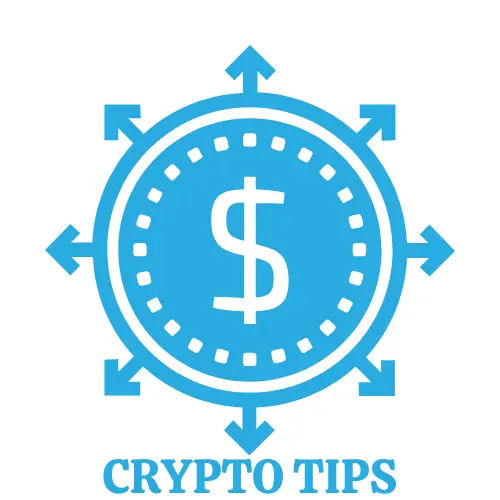Cryptocurrency Security: 15 Essential Tips to Protect Your Digital Assets
Biz.id may all your dreams come true. In This Time I will thoroughly examine the issues surrounding cryptocurrency. Posts About cryptocurrency Cryptocurrency Security 15 Essential Tips to Protect Your Digital Assets Let's discuss this article in full until the end.
- 1.1. Cryptocurrency Security: 15 Essential Tips to Protect Your Digital Assets
- 2.1. 1. Choose a Reputable Exchange:
- 3.1. 2. Enable Two-Factor Authentication (2FA):
- 4.1. 3. Use Strong Passwords and Change Them Regularly:
- 5.1. 4. Store Your Cryptocurrency in a Hardware Wallet:
- 6.1. 5. Enable Address Whitelisting:
- 7.1. 6. Be Wary of Phishing Scams:
- 8.1. 7. Use a VPN When Accessing Public Wi-Fi:
- 9.1. 8. Keep Your Software Up to Date:
- 10.1. 9. Be Cautious of Airdrops and ICOs:
- 11.1. 10. Monitor Your Transactions Regularly:
- 12.1. 11. Use a Password Manager:
- 13.1. 12. Be Aware of Social Engineering Attacks:
- 14.1. 13. Educate Yourself About Cryptocurrency Security:
- 15.1. 14. Consider Using a Multi-Signature Wallet:
- 16.1. 15. Back Up Your Cryptocurrency Wallets:
Table of Contents
Cryptocurrency Security: 15 Essential Tips to Protect Your Digital Assets
In the realm of digital finance, safeguarding your cryptocurrency investments is paramount. With the rise of cyber threats and the increasing value of cryptocurrencies, it's imperative to adopt robust security measures to protect your hard-earned assets. Here's a comprehensive guide to 15 essential tips that will help you secure your cryptocurrency holdings:
1. Choose a Reputable Exchange:
The first step towards securing your cryptocurrency is selecting a trustworthy exchange. Conduct thorough research, read reviews, and consider factors such as security features, reputation, and regulatory compliance. Opt for exchanges that employ industry-leading security protocols, including two-factor authentication (2FA), cold storage, and regular security audits.
2. Enable Two-Factor Authentication (2FA):
2FA adds an extra layer of security to your exchange account by requiring you to provide a second form of verification, typically a code sent to your mobile device, in addition to your password. This makes it significantly harder for unauthorized individuals to access your account, even if they have your password.
3. Use Strong Passwords and Change Them Regularly:
Create complex passwords that are difficult to guess, using a combination of uppercase and lowercase letters, numbers, and symbols. Avoid using personal information or common words that can be easily cracked. Additionally, change your passwords regularly to minimize the risk of compromise.
4. Store Your Cryptocurrency in a Hardware Wallet:
Hardware wallets are physical devices that store your cryptocurrency offline, making them immune to online hacking attempts. These wallets provide an additional layer of security by requiring physical access to the device to access your funds. Consider using a reputable hardware wallet manufacturer and follow best practices for securing your device.
5. Enable Address Whitelisting:
Address whitelisting allows you to specify a list of trusted addresses that can receive your cryptocurrency. By restricting withdrawals to only these addresses, you can prevent unauthorized transfers and mitigate the risk of theft.
6. Be Wary of Phishing Scams:
Phishing scams attempt to trick you into revealing your sensitive information, such as your login credentials or private keys, by sending emails or messages that appear to come from legitimate sources. Always verify the sender's identity and be cautious of any suspicious links or attachments.
7. Use a VPN When Accessing Public Wi-Fi:
Public Wi-Fi networks can be vulnerable to eavesdropping, making them a potential security risk when accessing your cryptocurrency accounts. Using a virtual private network (VPN) encrypts your internet traffic, protecting your data from interception.
8. Keep Your Software Up to Date:
Software updates often include security patches that address vulnerabilities. Regularly update your operating system, cryptocurrency wallets, and exchange software to ensure you have the latest security measures in place.
9. Be Cautious of Airdrops and ICOs:
Airdrops and initial coin offerings (ICOs) can be tempting opportunities to acquire new cryptocurrencies. However, it's crucial to exercise caution and thoroughly research any project before investing. Be wary of scams and only participate in reputable projects with clear use cases and strong teams.
10. Monitor Your Transactions Regularly:
Keep a close eye on your cryptocurrency transactions and account activity. Regularly review your transaction history and be alert to any unauthorized or suspicious activity. Promptly report any irregularities to your exchange or wallet provider.
11. Use a Password Manager:
A password manager can help you generate and store strong passwords for your cryptocurrency accounts and other online services. This eliminates the need to remember multiple complex passwords and reduces the risk of password breaches.
12. Be Aware of Social Engineering Attacks:
Social engineering attacks attempt to manipulate you into revealing sensitive information or taking actions that compromise your security. Be cautious of unsolicited messages or requests for personal information, and never share your private keys or seed phrases with anyone.
13. Educate Yourself About Cryptocurrency Security:
Stay informed about the latest cryptocurrency security threats and best practices. Read articles, attend webinars, and engage in discussions with other cryptocurrency enthusiasts to enhance your knowledge and stay ahead of potential risks.
14. Consider Using a Multi-Signature Wallet:
Multi-signature wallets require multiple private keys to authorize transactions, providing an additional layer of security. This can be beneficial for large investments or situations where multiple parties need to approve transactions.
15. Back Up Your Cryptocurrency Wallets:
Regularly back up your cryptocurrency wallets, including your private keys and seed phrases. Store these backups in multiple secure locations, such as a physical backup device or a cloud storage service. In case of device failure or loss, you can restore your wallet and access your funds.
Thank you for reading the complete discussion of cryptocurrency security 15 essential tips to protect your digital assets in cryptocurrency Please share this information if you find it useful improve your skills and maintain personal hygiene. please share this. hopefully the next article is useful. Thank you.

